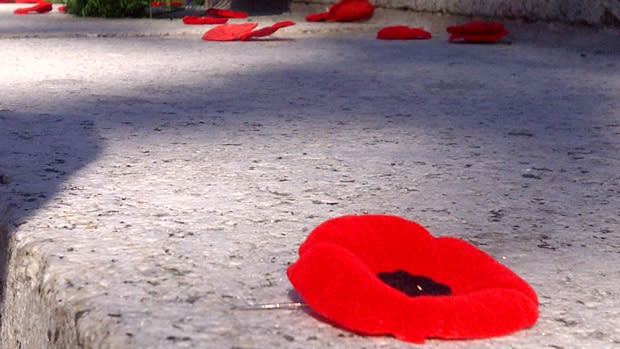 Daily Brew
Daily BrewPrison guards concerned that inmates will be making Remembrance Day poppies

It's hard to argue against the idea that prison inmates should be putting together Remembrance Day poppies, unless you're a prison guard.
CBC News reports it has learned prisoners at nine federal institutions on the Prairies will be doing just that under the Correctional Service of Canada's CORCAN job-training program.
According to its web site, CORCAN is designed to give prisoners skills they can use once they get out while producing a range of products and services sold to other federal departments, other levels of government, public institutions such as hospitals and schools, as well as non-profit groups.
[ Related: Legions struggling to find poppy-selling volunteers ]
The CORCAN catalogue lists everything from beds for homeless shelters and the military, to office desks and chairs, bedding and stationary. It also provides laundry services and prisoners even work on construction and renovation projects.
It's not clear what skill the small, supervised groups of inmates will learn by putting together the red flower with its black centre and sticking a bent pin through it.
But the union representing corrections officers has a problem with the program because prisoners will have access to those pins.
"If it's going into the mediums and maximums [prisons], there has to be security measures put in place," James Bloomfield, Prairies regional president of the Union of Canadian Correctional Officers, told CBC News.
[ Related: Knitted poppies should be a benefit, not a threat to Canadian Legion ]
The Royal Canadian Legion, which oversees the annual poppy program, has no evident problem with inmates putting the lapel pins together for the 2014 campaign.
"As Canada's largest veterans and community support organization, the legion recognizes that rehabilitation programs help assist yet another part of our communities," Scott Ferris, the legion's director of marketing and membership, said in an email to CBC News.
"The legion cannot turn its back on these individuals. Helping Canadians in all communities is at the heart of the legion's mission."
Veterans seem to feel the same way.
"I've got no problem with it," Andy Fialski of Winnipeg, a retired master corporal, told CBC News. "It's putting them to work doing something good for a change."
It'd be ironic if any of the participants had stolen poppy-donation cans in the past, a chronic problem where tins left on store and restaurant counters are filched every year.
Poppies were made by disabled veterans until the mid-1990s, when the work was moved to a private contractor.
[ Related: Five reasons to wear a Remembrance Day poppy ]
The legion says more than 18 million poppies have been distributed to its branches for this year's campaign, which begins Oct. 25. Last year's campaign raised more than $14 million, with the funds used to help veterans and their families.
CBC News reported last year that the declining number of veterans has made it harder to find volunteers to help sell the poppies. Older veterans are dying off and not enough younger vets seem prepared to take their place at store fronts and street corners.
Inmates of British prisons also make poppies for that country's annual campaign. The Mirror reported in 2011 that prisoners jailed for terrorism-related crimes were refusing to participate after threats were made by a gang called the Muslim Boys.


